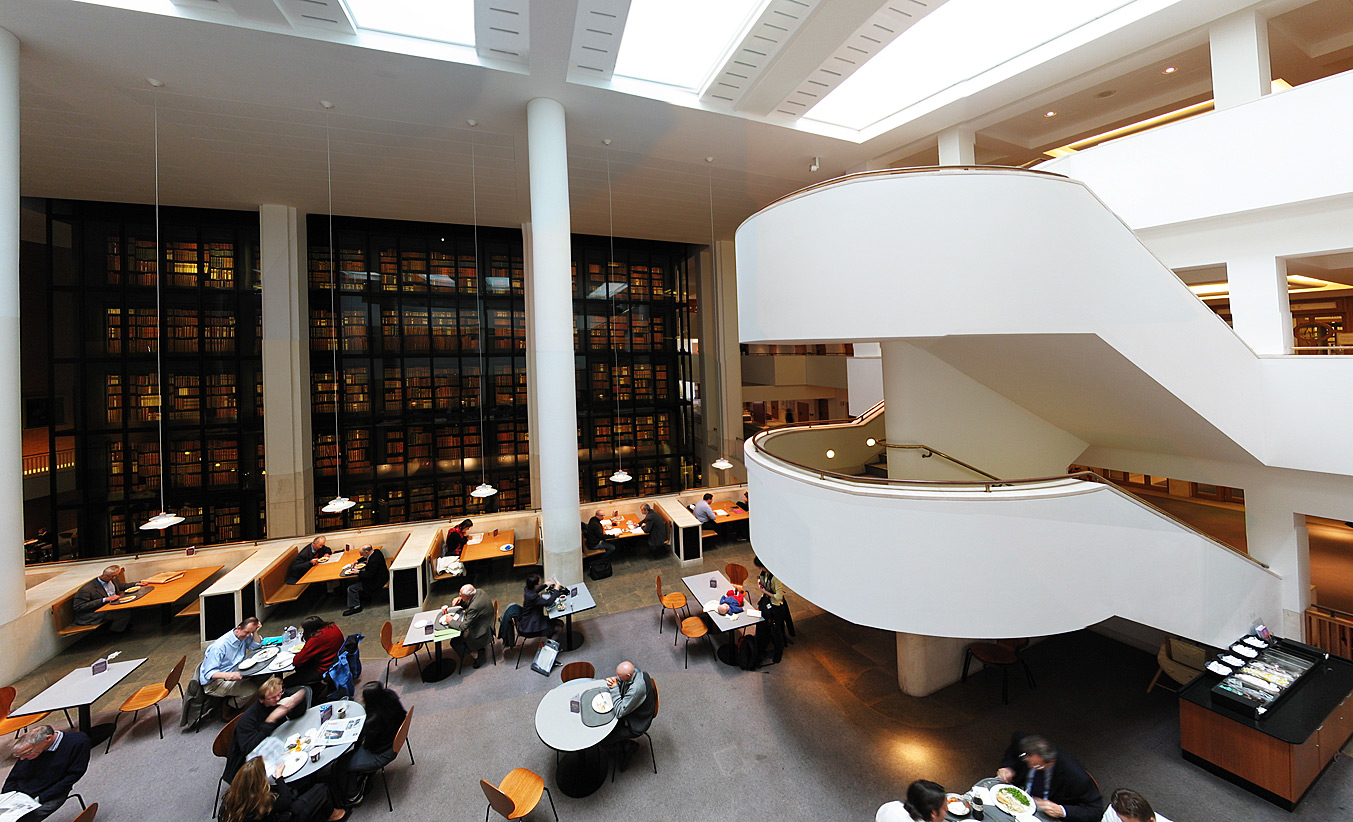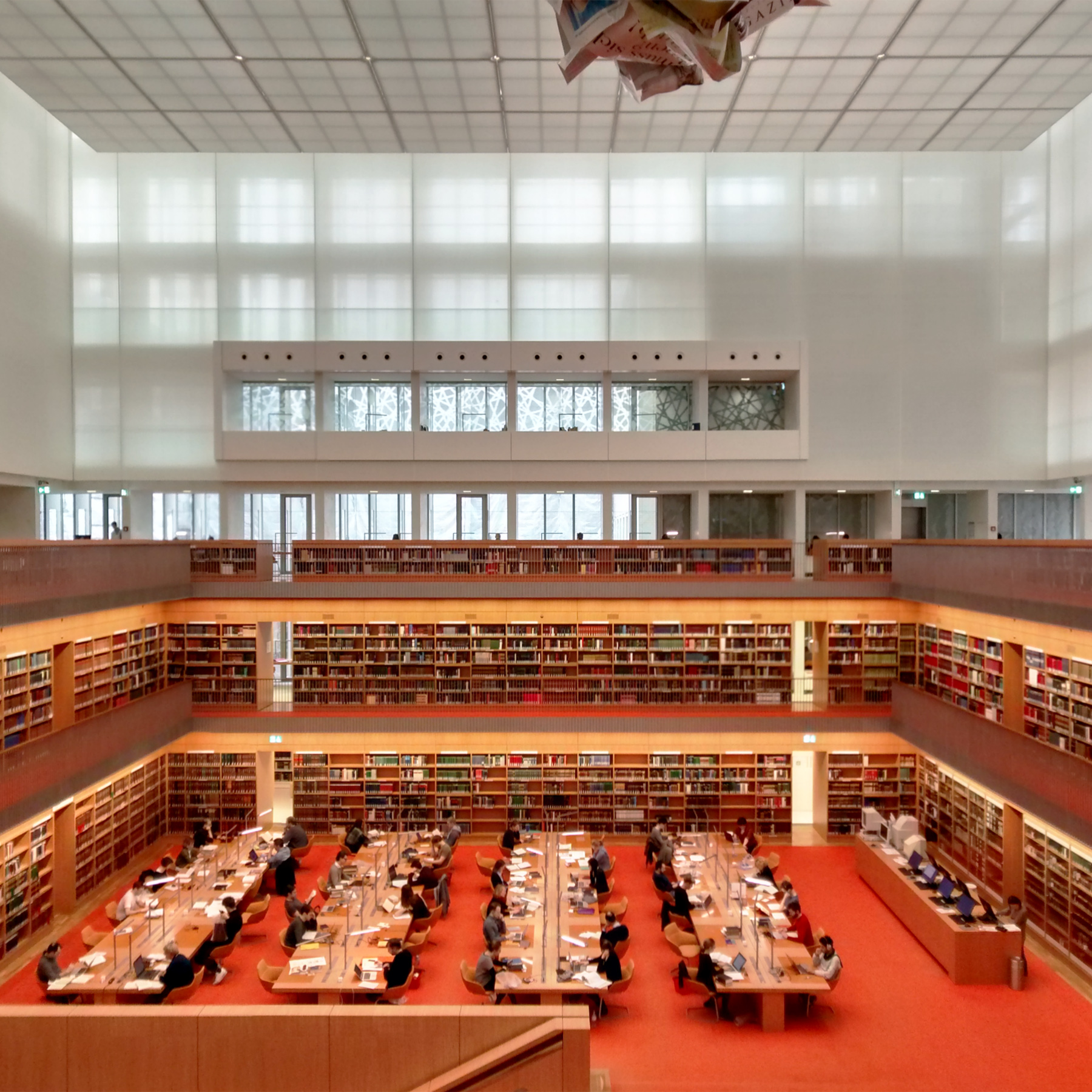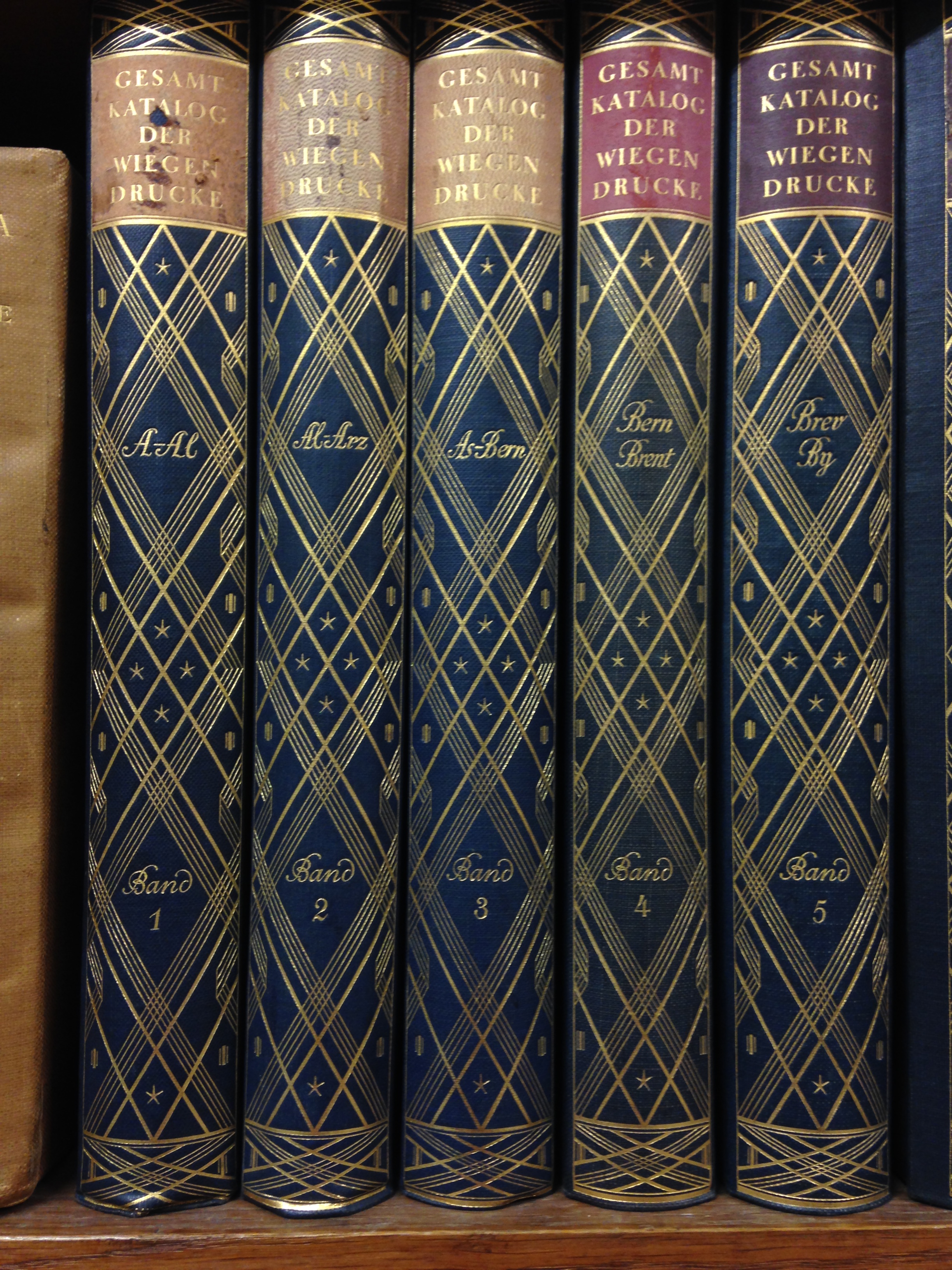|
Ludwig Hain
Ludwig Friedrich Theodor Hain (5 July 1781, in Stargard – 27 June 1836, in Munich) was a German editor and bibliographer. He studied classical philology and Oriental studies, Oriental languages at the University of Halle, and from 1802 lived and worked in Weimar. For several years he was an editor of Brockhaus Enzyklopädie, Brockhaus' ''Conversations-Lexikon'' in Altenburg (from 1812) and Leipzig. Later on in his career, he worked as private scholar in Munich. at Allgemeine Deutsche Biographie He is best known as the compiler of ''Repertorium bibliographicum'' (1822), a pioneering short title catalogue of incunabula. "Hain numbers" are still used as common bibliographical references. [...More Info...] [...Related Items...] OR: [Wikipedia] [Google] [Baidu] |
Stargard
Stargard (; 1945: ''Starogród'', 1950–2016: ''Stargard Szczeciński''; or ''Stargard an der Ihna''; ) is a city in northwestern Poland, located in the West Pomeranian Voivodeship. In 2021 it was inhabited by 67,293 people. It is situated on the Ina River. The city is the seat of the Stargard County, and, extraterritorially, of the municipality of Gmina Stargard, Stargard. It is the second biggest city of Szczecin agglomeration. Founded in the 8th century, Stargard is one of the oldest cities in Poland. It owed its centuries-long prosperity to trade and crafts, and from 1377 to 1478 it was the capital of a small eponymous principality ruled by the House of Griffin. It became more internationally known only in the 20th century, for being the location of large German-operated prisoner-of-war camps for tens of thousands of Allied soldiers of various nationalities during each of the world wars. The city contains several notable medieval Gothic architecture, Gothic landmarks, chief ... [...More Info...] [...Related Items...] OR: [Wikipedia] [Google] [Baidu] |
British Library
The British Library is the national library of the United Kingdom. Based in London, it is one of the largest libraries in the world, with an estimated collection of between 170 and 200 million items from multiple countries. As a legal deposit library, it receives copies of all books produced in the United Kingdom and Ireland, as well as a significant proportion of overseas titles distributed in the United Kingdom. The library operates as a non-departmental public body sponsored by the Department for Culture, Media and Sport. The British Library is a major research library, with items in many languages and in many formats, both print and digital: books, manuscripts, journals, newspapers, magazines, sound and music recordings, videos, play-scripts, patents, databases, maps, stamps, prints, drawings. The Library's collections include around 14 million books, along with substantial holdings of manuscripts and items dating as far back as 2000 BC. The library maintains a programme for ... [...More Info...] [...Related Items...] OR: [Wikipedia] [Google] [Baidu] |
People From Stargard
The term "the people" refers to the public or common mass of people of a polity. As such it is a concept of human rights law, international law as well as constitutional law, particularly used for claims of popular sovereignty. In contrast, a people is any plurality of persons considered as a whole. Used in politics and law, the term "a people" refers to the collective or community of an ethnic group or nation. Concepts Legal Chapter One, Article One of the Charter of the United Nations states that "peoples" have the right to self-determination. Though the mere status as peoples and the right to self-determination, as for example in the case of Indigenous peoples (''peoples'', as in all groups of indigenous people, not merely all indigenous persons as in ''indigenous people''), does not automatically provide for independent sovereignty and therefore secession. Indeed, judge Ivor Jennings identified the inherent problems in the right of "peoples" to self-determination, as i ... [...More Info...] [...Related Items...] OR: [Wikipedia] [Google] [Baidu] |
19th-century German Male Writers
The 19th century began on 1 January 1801 (represented by the Roman numerals MDCCCI), and ended on 31 December 1900 (MCM). It was the 9th century of the 2nd millennium. It was characterized by vast social upheaval. Slavery was Abolitionism, abolished in much of Europe and the Americas. The First Industrial Revolution, though it began in the late 18th century, expanded beyond its British homeland for the first time during the 19th century, particularly remaking the economies and societies of the Low Countries, France, the Rhineland, Northern Italy, and the Northeastern United States. A few decades later, the Second Industrial Revolution led to ever more massive urbanization and much higher levels of productivity, profit, and prosperity, a pattern that continued into the 20th century. The Catholic Church, in response to the growing influence and power of modernism, secularism and materialism, formed the First Vatican Council in the late 19th century to deal with such problems an ... [...More Info...] [...Related Items...] OR: [Wikipedia] [Google] [Baidu] |
German Bibliographers
German(s) may refer to: * Germany, the country of the Germans and German things **Germania (Roman era) * Germans, citizens of Germany, people of German ancestry, or native speakers of the German language ** For citizenship in Germany, see also German nationality law **Germanic peoples (Roman era) *German diaspora * German language * German cuisine, traditional foods of Germany People * German (given name) * German (surname) * Germán, a Spanish name Places * German (parish), Isle of Man * German, Albania, or Gërmej * German, Bulgaria * German, Iran * German, North Macedonia * German, New York, U.S. * Agios Germanos, Greece Other uses * German (mythology), a South Slavic mythological being * Germans (band), a Canadian rock band * "German" (song), a 2019 song by No Money Enterprise * ''The German'', a 2008 short film * "The Germans", an episode of ''Fawlty Towers'' * ''The German'', a nickname for Congolese rebel André Kisase Ngandu See also * Germanic (disambiguat ... [...More Info...] [...Related Items...] OR: [Wikipedia] [Google] [Baidu] |
Incunabula
An incunable or incunabulum (: incunables or incunabula, respectively) is a book, pamphlet, or broadside (printing), broadside that was printed in the earliest stages of printing in Europe, up to the year 1500. The specific date is essentially arbitrary, but the number of printed book editions exploded in the following century, so that all incunabula, produced before the printing press became Global spread of the printing press#Europe, widespread in Europe, are rare, where even some early 16th-century books are relatively common. They are distinct from manuscripts, which are documents written by hand. Some authorities on the history of printing include block books from the same time period as incunabula, whereas others limit the term to works printed using movable type. there are about 30,000 distinct incunable Edition (book), editions known. The probable number of surviving individual copies is much higher, estimated at 125,000 in Germany alone. Through statistical analy ... [...More Info...] [...Related Items...] OR: [Wikipedia] [Google] [Baidu] |
19th-century German Writers
The 19th century began on 1 January 1801 (represented by the Roman numerals MDCCCI), and ended on 31 December 1900 (MCM). It was the 9th century of the 2nd millennium. It was characterized by vast social upheaval. Slavery was abolished in much of Europe and the Americas. The First Industrial Revolution, though it began in the late 18th century, expanded beyond its British homeland for the first time during the 19th century, particularly remaking the economies and societies of the Low Countries, France, the Rhineland, Northern Italy, and the Northeastern United States. A few decades later, the Second Industrial Revolution led to ever more massive urbanization and much higher levels of productivity, profit, and prosperity, a pattern that continued into the 20th century. The Catholic Church, in response to the growing influence and power of modernism, secularism and materialism, formed the First Vatican Council in the late 19th century to deal with such problems and confirm ce ... [...More Info...] [...Related Items...] OR: [Wikipedia] [Google] [Baidu] |
1836 Deaths
Events January–March * January 1 — Hill Street Academy is named Colombo Academy and acquired by the Government, establishing the first public school in Sri Lanka. * January 1 – Queen Maria II of Portugal marries Prince Ferdinand Augustus Francis Anthony of Saxe-Coburg-Gotha. * January 5 – Former U.S. Representative Davy Crockett of Tennessee arrives in Texas to join the Texan fight for independence from Mexico. * January 12 ** , with Charles Darwin on board, reaches Sydney. ** Will County, Illinois, is formed. * February 8 – London and Greenwich Railway opens its first section, the first railway in London, England. * February 23 – Texas Revolution: The Battle of the Alamo begins, with an American settler army surrounded by the Mexican Army, under Santa Anna. * February 25 – Samuel Colt receives a United States patent for the Colt revolver, the first revolving barrel multishot firearm. * March 1 – Texas Revolution – Convention of 1836: Delegates from m ... [...More Info...] [...Related Items...] OR: [Wikipedia] [Google] [Baidu] |
1781 Births
Events January–March * January – William Pitt the Younger, later Prime Minister of Great Britain, enters Parliament, aged 21. * January 1 – Industrial Revolution: The Iron Bridge opens across the River Severn in England. * January 2 – Virginia passes a law ceding its western land claims, paving the way for Maryland to ratify the Articles of Confederation. * January 5 – American Revolutionary War: Richmond, Virginia is burned by British naval forces, led by Benedict Arnold. * January 6 – Battle of Jersey: British troops prevent the French from occupying Jersey in the Channel Islands. * January 17 – American Revolutionary War – Battle of Cowpens: The American Continental Army, under Daniel Morgan, decisively defeats British forces in South Carolina. * February 2 – The Articles of Confederation are ratified by Maryland, the 13th and final state to do so. * February 3 – Fourth Anglo-Dutch War &n ... [...More Info...] [...Related Items...] OR: [Wikipedia] [Google] [Baidu] |
Walter Arthur Copinger
Walter Arthur Copinger (14 April 1847 – 13 March 1910) was an English professor of law, antiquary and bibliographer. Early life and education Copinger was born on 14 April 1847 at Clapham, the second son of Charles Louis George Emanuel Copinger and his wife Mary, widow of George James, and daughter of Thomas Pearson of Shepperton, Surrey. Educated at the private school of John Andrews at Wellesley House, Brighton, he passed to University College, Durham, but left Durham without completing his course to enter the office of a relative who was a solicitor in London. He did not remain there long. In 1866 he was admitted a student of the Middle Temple, and after spending a short time in the chambers of T. Bourdillon, a well-known conveyancing counsel, he was called to the bar on 26 January 1869. He had mastered the principal treatises of law, and especially the law of real property. Career In 1870 Copinger settled in Manchester, and commenced practice as an equity draughtsman and ... [...More Info...] [...Related Items...] OR: [Wikipedia] [Google] [Baidu] |
Staatsbibliothek Zu Berlin
The Berlin State Library (; officially abbreviated as ''SBB'', colloquially ''Stabi'') is a universal library in Berlin, Germany, and a property of the German public cultural organization the Prussian Cultural Heritage Foundation (). Founded in 1661, it is among the largest libraries in Europe, and one of the most important academic research libraries in the German-speaking world. It collects texts, media and cultural works from all fields across many languages, from all time periods and all countries of the world, and offer them for academic and research purposes. Prominent items in its collection include the oldest biblical illustrations in the fifth-century Quedlinburg Itala fragment, a Gutenberg Bible, the main autograph collection of Goethe, the world's largest collection of Johann Sebastian Bach's and Wolfgang Amadeus Mozart's manuscripts, and the original score of Ludwig van Beethoven's Symphony No. 9. Central functions and cooperation with other libraries The SBB is ... [...More Info...] [...Related Items...] OR: [Wikipedia] [Google] [Baidu] |
Gesamtkatalog Der Wiegendrucke
( (abbreviated as ''GW or GKW'') is an ongoing project of the Berlin State Library and appears in conjunction with the print edition of the union catalogue of incunabula. The serves as a bibliography or collection of cradle prints or incunabula. The word ''incunabula'' stems from the Latin word (place of birth or beginning). In the world of books, incunabula refer to books that were printed using metal type up to the year 1500. The work is based on the description of the individual prints, each complete description consists of the bibliographic note, the collation, the description in the narrower sense, the source, and the copy. The database contains all together 36,000 descriptions of incunabula, distributed over at least 3,900 articles. The is available in part in print and in its entirety—in draft form—via an online database. Publications Volumes 1–7 of the catalogue were published in Leipzig between 1925 and 1940 by Karl W. Hiersemann; they are now out of pr ... [...More Info...] [...Related Items...] OR: [Wikipedia] [Google] [Baidu] |







